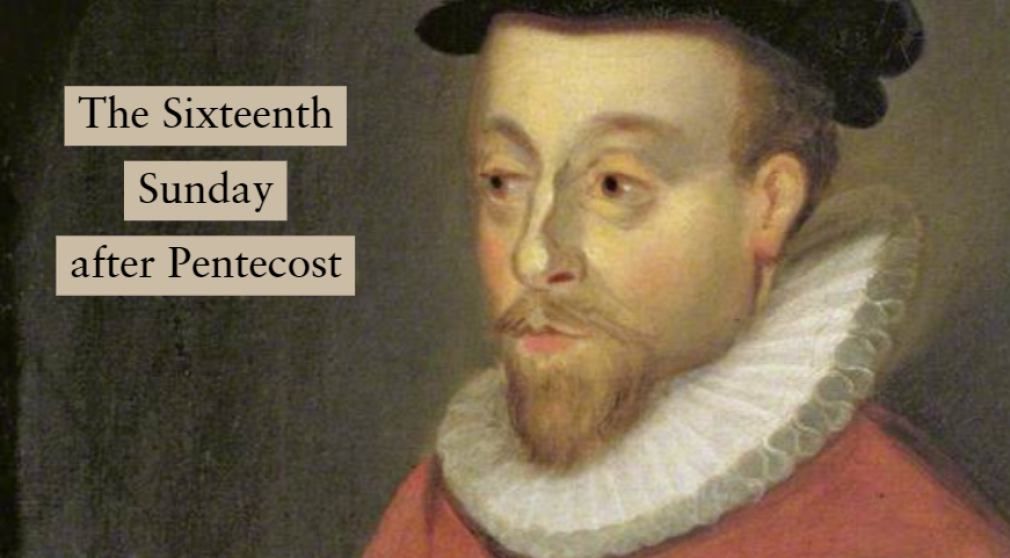The Sixteenth Sunday after Pentecost: in which Gibbons adds a few words to Psalm 6

 Psalm 6 shares a similar sentiment to that of the cry of the rich man in the Gospel for this service. English Tudor composer Orlando Gibbons (1583–1625) uses the first four verses of this psalm in his full anthem O Lord, in thy wrath, sung at the Offertory this Sunday. It should be noted, however, that the words “in thy wrath” do not appear in any version of Psalm 6 that I can find. It seems that Gibbons lifted these words from Psalm 7.
Psalm 6 shares a similar sentiment to that of the cry of the rich man in the Gospel for this service. English Tudor composer Orlando Gibbons (1583–1625) uses the first four verses of this psalm in his full anthem O Lord, in thy wrath, sung at the Offertory this Sunday. It should be noted, however, that the words “in thy wrath” do not appear in any version of Psalm 6 that I can find. It seems that Gibbons lifted these words from Psalm 7.
Gibbons also wrote madrigals, and there are elements of the customary “text painting” associated with that music in this anthem. One such instance occurs at the words “For I am weak,” which are sung only by the three upper voices of the six-voice texture.
American composer Gerald Near (b. 1942) studied composition with Leo Sowerby, Leslie Bassett, and Dominick Argento. He is a prolific composer of sacred music and is well represented in the Hymnal 1982, with hymn tunes at Hymn 37 and 454.
There are also five pieces by Near in the Service Music section of the Hymnal. For the last several weeks we have been singing his Fraction Anthem (Hymnal S 155) at the Breaking of the Bread. This music was commissioned in 1974 for the Lutheran Book of Worship but was ultimately not used in that hymnal. But the Lutherans’ loss is the Episcopalians’ gain! This music is also included with an Alleluia-free version for use in Lent (Hymnal S 156)
Near’s anthem The Best of Rooms was published in 1984 and is a setting of the short 17th-century poem “Christ’s Part” by Robert Herrick. Near continues his long career as a church musician and currently serves as both Parish Administrator and Director of Music at St. Francis in the Valley, Green Valley, Arizona. Previously he served at Calvary Episcopal Church, Rochester, Minnesota; St. Matthew’s Cathedral, Dallas; the Cathedral of St. John, Denver, where he was composer-in-residence; and Holy Faith Episcopal Church, Santa Fe.

